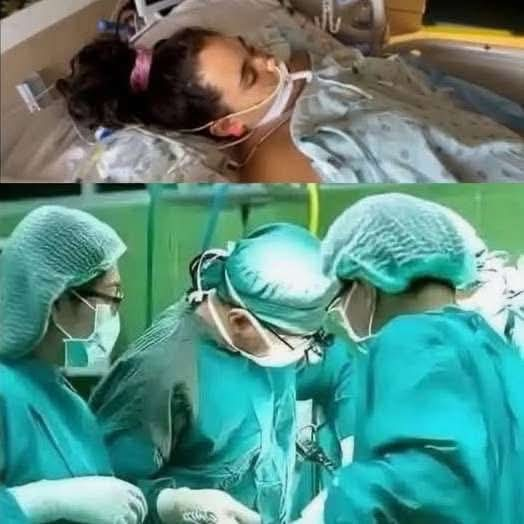A quiet afternoon turned into a nightmare for a local family when their teenage daughter was rushed to the hospital in critical condition. The young girl, whose identity has been withheld for privacy reasons, was found doubled over in pain in her bedroom. Her parents, unaware of what had happened, called an ambulance when she began to bleed heavily and struggled to stand upright.
At the emergency room, doctors conducted a quick examination and were stunned by what they discovered. The girl had inserted a pen into her private area, causing severe internal injuries that required immediate surgical intervention. The incident left both medical staff and her family in shock.
The surgery lasted several hours. Surgeons worked tirelessly to stop the internal bleeding and remove the object. Though her life was no longer in immediate danger, doctors warned that the damage could lead to long-term complications. It was a terrifying reminder of the irreversible harm that can be caused by such risky behavior.
Once stabilized, the girl was moved to the recovery ward, where she was kept under observation. Psychologists were also brought in to assess her mental and emotional state. They believed the act may have stemmed from a combination of curiosity, misinformation, and lack of open conversation about sexual health and bodily autonomy.
Medical experts stress that inserting non-medical objects into the body is extremely dangerous. It can result in infections, internal injuries, and, in some cases, permanent damage to organs or reproductive systems. What might seem like harmless experimentation can quickly turn into a life-threatening emergency.
Doctors have since issued a public warning, urging teens to avoid such dangerous practices and encouraging open dialogue at home and in schools. They emphasized that curiosity is natural, especially during adolescence, but it must be guided by proper information and support.
The incident has sparked widespread conversation on social media, with parents, educators, and health professionals weighing in on the importance of early and honest education about body safety. Many expressed concern over the lack of resources available to teens and the stigma that still surrounds conversations about sexual health.
“Teens need a safe space where they can ask questions without fear or shame,” said Dr. Emily Jordan, a pediatrician involved in the case. “When these topics are avoided, children turn to unsafe sources for information, or worse, they try to figure things out on their own – sometimes with disastrous results.”
The girl’s parents, devastated by the ordeal, admitted they had never spoken to her about such topics. “We thought she was too young. We didn’t know she had questions,” her mother said through tears. “Now, we’ll never avoid those conversations again.”
Health professionals recommend that parents start age-appropriate conversations about body awareness and safety early. It’s important to explain the functions of the body, what’s safe, and why certain behaviors can be harmful, even if the child seems embarrassed or reluctant to engage.
Schools also play a crucial role. Comprehensive sexual education programs that focus on safety, respect, and open communication are essential to prevent such incidents. Teenagers need to understand that their bodies are not objects of experimentation, but vessels deserving of care and understanding.
The teen, now recovering physically and emotionally, has bravely agreed to let her story be shared – anonymously – as a way to help others. She hopes her painful experience will be a wake-up call to both parents and teens about the importance of awareness and guidance.
This story is not meant to shame or sensationalize. It is a sobering reminder of what can happen when curiosity is met with silence instead of information, and when fear replaces conversation. Let this be a lesson, not just for one family, but for all.
No child should have to suffer in silence. Share this story to raise awareness, to open the door to honest conversations, and to protect others from making the same mistake. Knowledge saves lives – and sometimes, so does simply listening.
